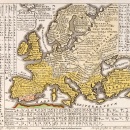 |
1741 linguistic map of Europe, Asia, and Africa
Gottfried Hensel (1687–1765) was a German linguist. His book Synopsis Universae Philologiae, published in 1741, was an early work on (...)
November 28, 2018 – Jakub Marian – Maps
|
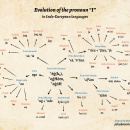 |
Evolution of the pronoun “I” in Indo-European languages
Most European languages developed from a single language called Proto-Indo-European, spoken approximately between 4500 BC and 2500 BC (...)
November 26, 2018 – Jakub Marian – Maps
|
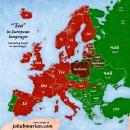 |
“Tea” in European Languages (map)
Did you know that “tea” is either “te” or “cha(i)” in almost all languages in the world? Both names originally come from Chinese 茶, (...)
November 12, 2018 – Jakub Marian – Maps
|
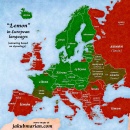 |
“Lemon” in European languages
The English word “lemon” comes from Old French limon, which comes from Arabic laymūn or Ottoman Turkish limon, which in turn comes from (...)
October 8, 2018 – Jakub Marian – Maps
|
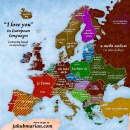 |
“I love you” in European languages
Did you know that “I love you!” is more commonly used in English than “Good morning!”? (I can prove it!). It is used to express feelings (...)
October 3, 2018 – Jakub Marian – Maps
|
By the way, have you already seen my brand new web app for non-native speakers of English? It's based on reading texts and learning by having all meanings, pronunciations, grammar forms etc. easily accessible. It looks like this:
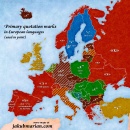 |
Map of quotation marks in European languages
We are all familiar with English quotation marks: “these” (double) and ‘these’ (single). The American style (and the prevalent style in (...)
September 24, 2018 – Jakub Marian – Maps
|
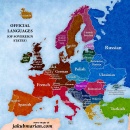 |
Official languages of European countries
Most European countries have just one official language. Some actually have none (which is the case of the United Kingdom, where English (...)
September 18, 2018 – Jakub Marian – Maps
|
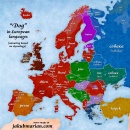 |
“Dog” in European languages
The English word “dog” comes from Old English docga, the origin of which is uncertain. It eventually replaced Old English hund (cf. (...)
August 16, 2018 – Jakub Marian – Maps
|
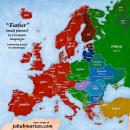 |
“Father” in European languages
It is probably not surprising that the English word “father” and German “Vater” share a common origin, but did you know that Irish and (...)
June 17, 2018 – Jakub Marian – Maps
|
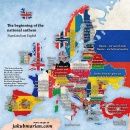 |
National anthem by country in Europe
The map below shows the beginning of the national anthem of each European country (except for several microstates) translated into English (...)
May 10, 2018 – Jakub Marian – Maps
|
